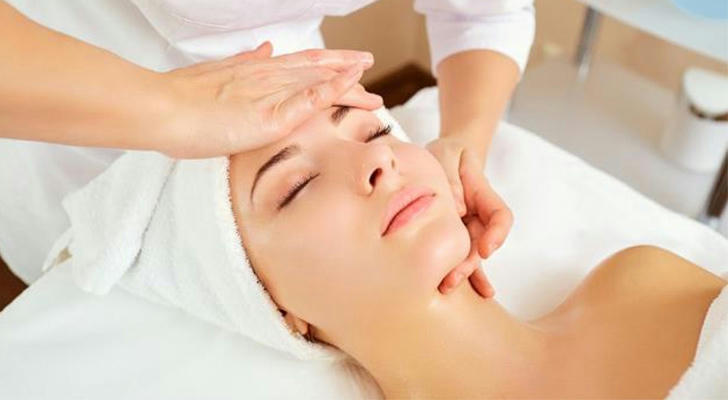beauty schools, increase professional skills
The beauty industry is constantly evolving, and beauty schools must adapt to new trends, technologies, and demands. Aspiring beauty professionals now have access to a wide range of educational opportunities, from traditional cosmetology programs to specialized courses in skincare, makeup artistry, and nail technology. This article explores some of the hottest topics in beauty education today and how they are shaping the future of the industry.

The Rising Demand for Skincare Specialists: How Beauty Schools Are Adapting
With the growing awareness of skincare and self-care, estheticians and skincare specialists are in high demand. Beauty schools are expanding their esthetics programs to include advanced techniques like chemical peels, microdermabrasion, and LED light therapy. Many programs now also focus on dermatology basics to help students understand different skin types and conditions.
Financial Aid and Scholarships for Beauty School: What You Need to Know
The cost of attending beauty school can be a significant barrier for many students. Fortunately, financial aid options, including federal student loans, grants, and scholarships, are becoming more accessible. Organizations like the Beauty Changes Lives Foundation and the Professional Beauty Association offer scholarships for aspiring beauty professionals. Some beauty schools also offer payment plans and tuition reimbursement programs to make education more affordable.
The Impact of Social Media on Beauty Education and Career Opportunities
Social media has transformed the beauty industry, making it easier for students to showcase their skills and build a portfolio. Platforms like Instagram, TikTok, and YouTube allow beauty students to gain exposure, attract clients, and even secure job opportunities. Many beauty schools now include social media marketing in their curriculum, teaching students how to promote their work and engage with potential clients online.
Online vs. In-Person Beauty School: Which One is Right for You?
The rise of online learning has extended to beauty education, with many schools offering hybrid or fully online programs. While theoretical lessons, such as sanitation and business management, can be taught online, hands-on training remains essential for mastering beauty techniques. Some schools use virtual reality (VR) and interactive simulations to supplement hands-on practice, bridging the gap between online and in-person learning.
Latest Beauty Industry Trends and How Beauty Schools Are Keeping Up
From clean beauty to non-invasive cosmetic procedures, beauty schools are incorporating the latest industry trends into their programs. Courses now include techniques like dermaplaning, brow lamination, and lash lifts. Schools are also integrating wellness and holistic beauty practices, recognizing that beauty is increasingly linked to overall health and well-being.
Licensing Requirements for Beauty Professionals: What Every Student Should Know
Licensing requirements for beauty professionals vary by state and country, making it crucial for students to understand the regulations in their region. Many beauty schools offer licensing preparation courses, helping students pass state board exams. Some states are even revising their licensing requirements to make it easier for professionals to work across state lines, opening more job opportunities.
How Beauty Schools Are Incorporating Sustainable and Eco-Friendly Practices
Sustainability is a growing concern in the beauty industry, and beauty schools are taking steps to reduce their environmental impact. Schools are now incorporating eco-friendly product lines, reducing water waste, and teaching students about sustainable beauty practices. Some programs even focus on natural and organic skincare formulations, preparing students for careers in green beauty.
Entrepreneurship in the Beauty Industry: How Beauty Schools Are Training Future Salon Owners
Many beauty professionals aspire to open their own salons, spas, or beauty businesses. Beauty schools are now including business and entrepreneurship courses in their curriculum, teaching students about branding, client management, and financial planning. With the rise of independent beauty professionals, business education is becoming just as important as technical training.
Diversity and Inclusion in Beauty Schools: Breaking Stereotypes in the Industry
The beauty industry is becoming more diverse, with a growing demand for professionals who understand different hair textures, skin tones, and cultural beauty practices. Beauty schools are expanding their curriculum to include multicultural beauty techniques, ensuring that graduates are prepared to serve a wide range of clients. Schools are also working to create more inclusive environments, encouraging diversity in their student bodies and faculty.
The Future of Beauty Education: How Technology is Transforming Training Methods
Technology is playing a significant role in the future of beauty education. Beauty schools are using virtual reality (VR) training, artificial intelligence (AI)-powered simulations, and online tutorials to enhance learning experiences. 3D-printed mannequin heads and digital skin analysis tools are also being introduced to provide students with realistic practice opportunities. These advancements are making beauty education more accessible and innovative than ever before.
Final Thoughts
Beauty schools are evolving to meet the changing demands of the industry, incorporating new technologies, trends, and business strategies. Whether you're interested in skincare, hairstyling, or beauty entrepreneurship, staying informed about these hot topics can help you make the most of your education and career. As the beauty industry continues to grow, so do the opportunities for those passionate about helping others look and feel their best.
